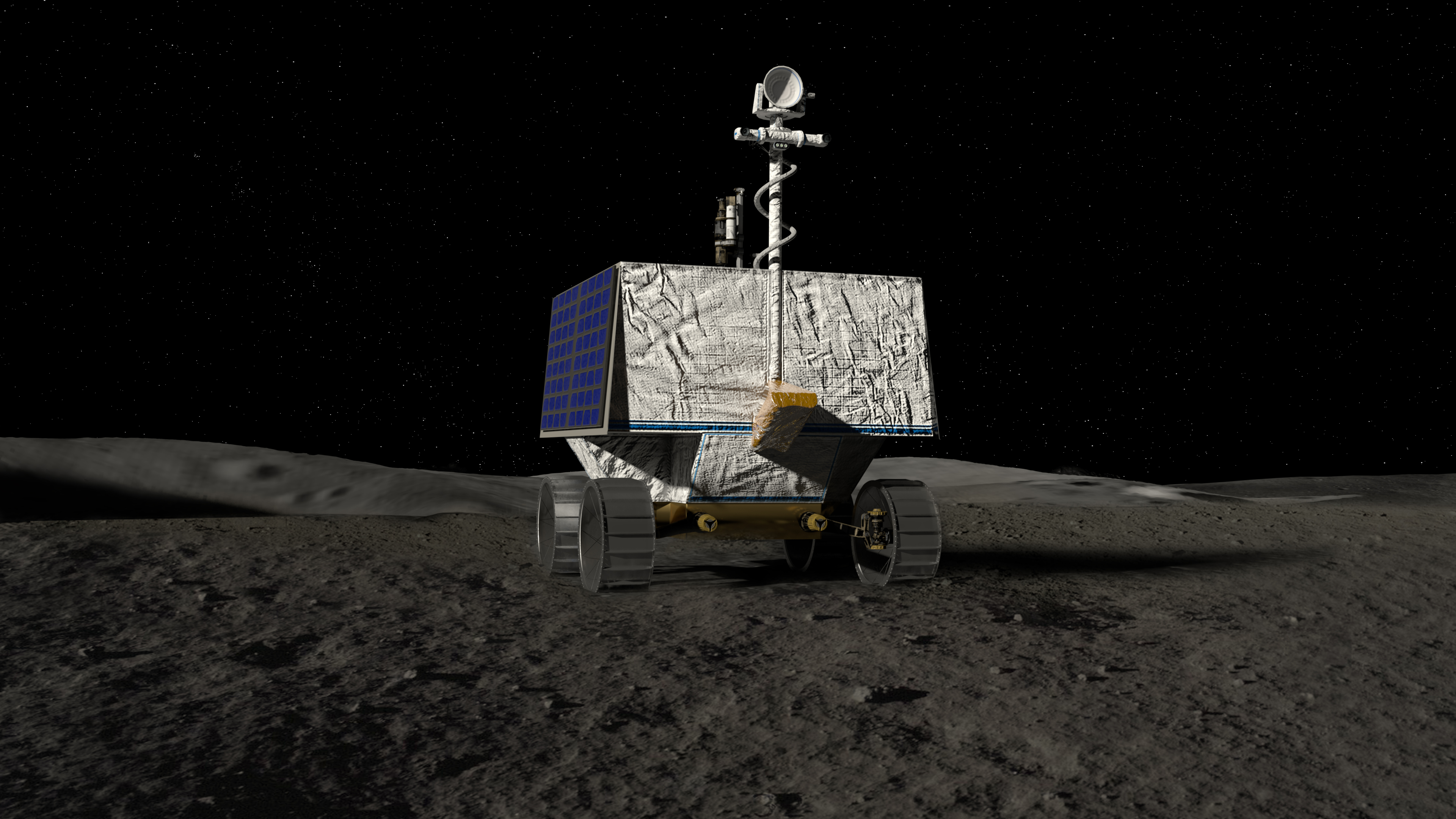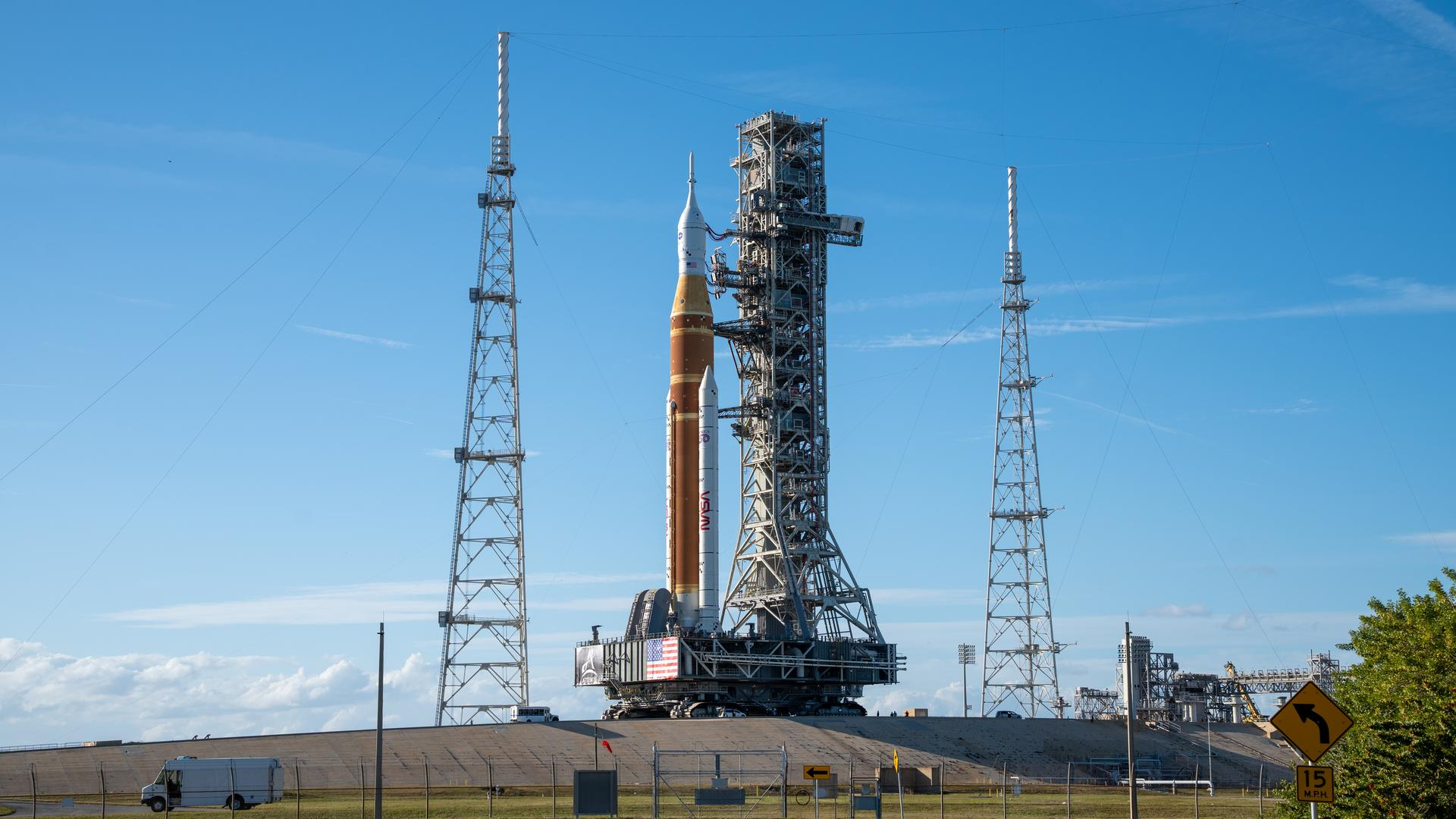NASA's VIPER moon mission to seek out lunar water slips to 2023

NASA is delaying the launch of a long-lived rover designed to sniff out water on the moon.
The agency announced plans for the new VIPER mission (the name is short for Volatiles Investigating Polar Exploration Rover) in October 2019 as part of the Artemis program to land astronauts on the moon by 2024. VIPER is meant to map water ice on the moon, which exploration planners hope could be turned into drinking water and rocket fuel. At the time of the announcement, VIPER was due to launch in December 2022, but the planned date has now slipped to the next year.
"Once this @NASAMoon rover lands, it will collect up to 100 days of data, travel several kilometers and survive lunar nights," Thomas Zurbuchen, head of NASA's Science Mission Directorate, said on Twitter yesterday (Feb. 25). "Moving delivery of VIPER to 2023 allows for upgrades so that the rover can conduct longer and more exciting science on the moon!"
Related: Moon VIPER: NASA's water-sniffing rover to lunar south pole
Zurbuchen did not provide additional comments about what those upgrades might look like; the 100-day science mission, roving distance and ability to withstand the frigid lunar nights were all components of original announcements about VIPER.
Although VIPER is a new mission, developed as part of NASA's Artemis program, it is heavily based on designs for a previous mission, Resource Prospector, which NASA canceled in 2018. Two of VIPER's instruments were adopted from work on that mission.
VIPER's instrument suite is designed to teach scientists how to convert the orbital data they have about the moon into an understanding of precisely where lunar ice is hidden — not just in the region VIPER visits, but across the moon's surface.
Breaking space news, the latest updates on rocket launches, skywatching events and more!
NASA will build the rover, then hire its ride through the Commercial Lunar Payload Services program, which currently allows 14 companies to bid on deliveries.
- Why haven't humans gone back to the moon since the Apollo missions?
- From Apollo to Artemis — how astronaut food may change on the moon
- How to make moon water: Add solar wind, tiny meteorites and then heat
Email Meghan Bartels at mbartels@space.com or follow her @meghanbartels. Follow us on Twitter @Spacedotcom and on Facebook.
OFFER: Save at least 56% with our latest magazine deal!
All About Space magazine takes you on an awe-inspiring journey through our solar system and beyond, from the amazing technology and spacecraft that enables humanity to venture into orbit, to the complexities of space science.

Meghan is a senior writer at Space.com and has more than five years' experience as a science journalist based in New York City. She joined Space.com in July 2018, with previous writing published in outlets including Newsweek and Audubon. Meghan earned an MA in science journalism from New York University and a BA in classics from Georgetown University, and in her free time she enjoys reading and visiting museums. Follow her on Twitter at @meghanbartels.

